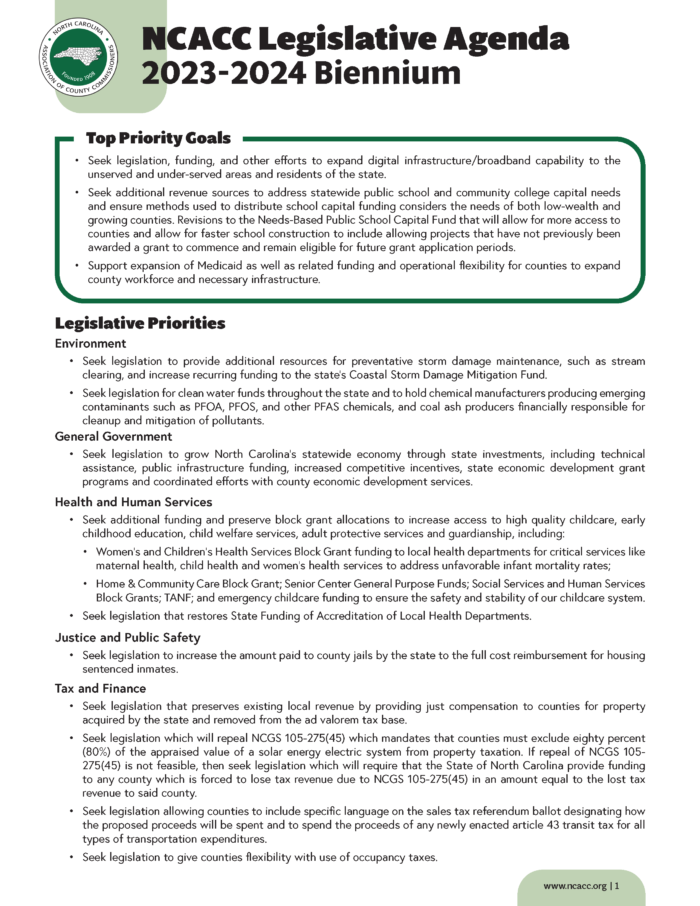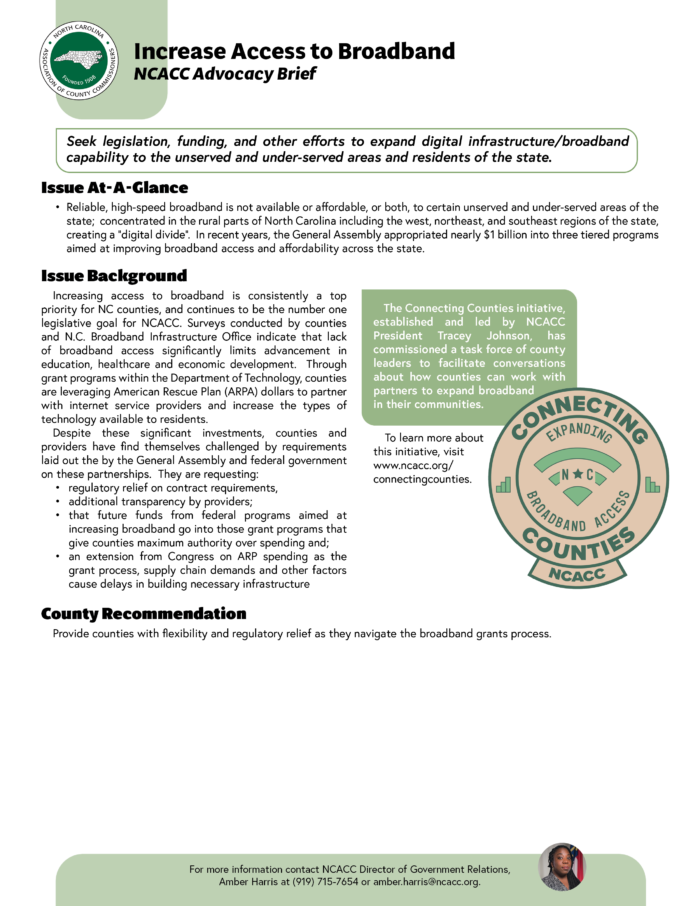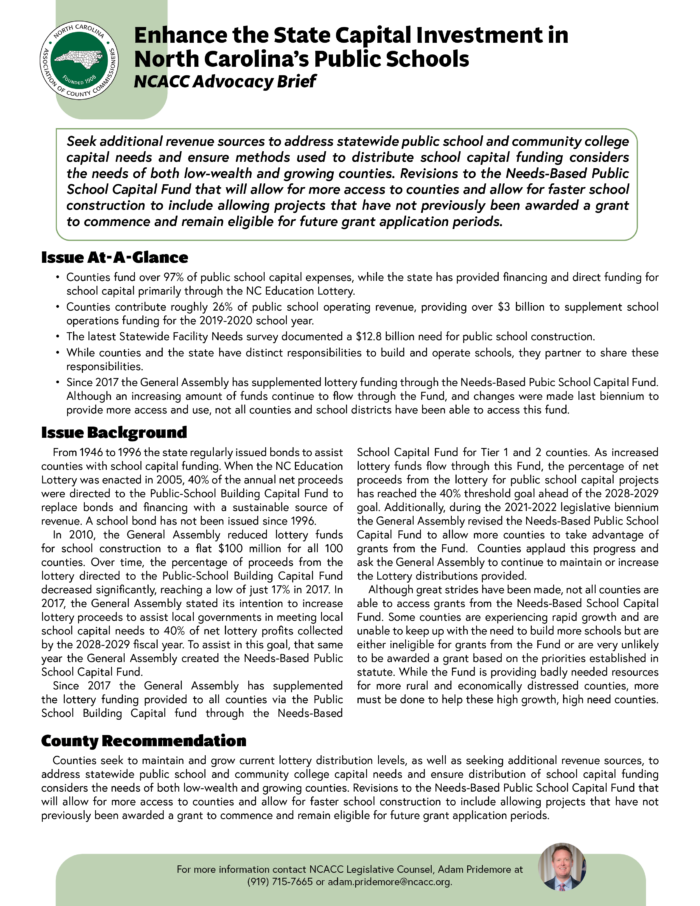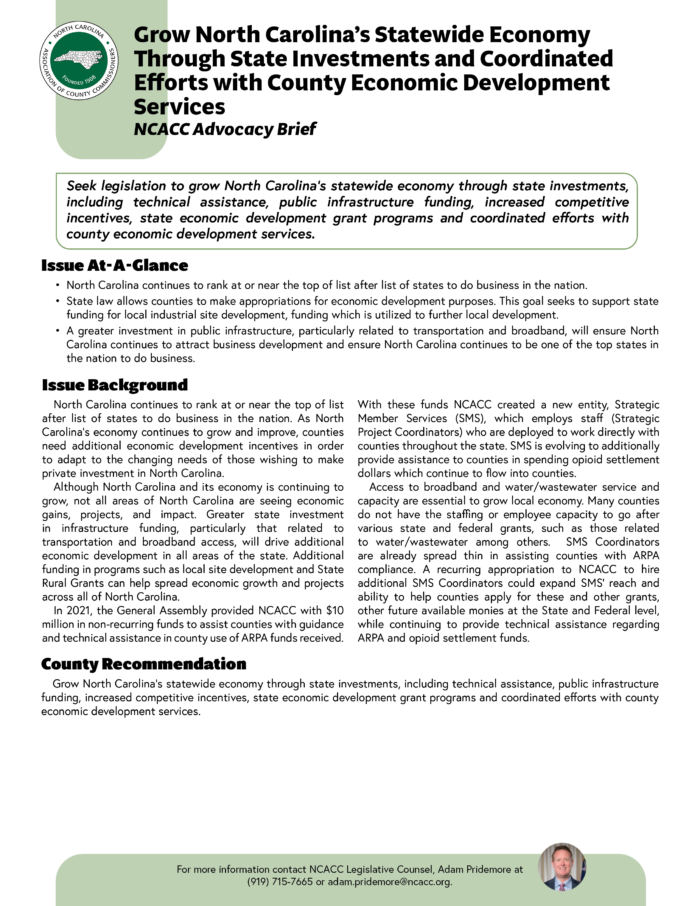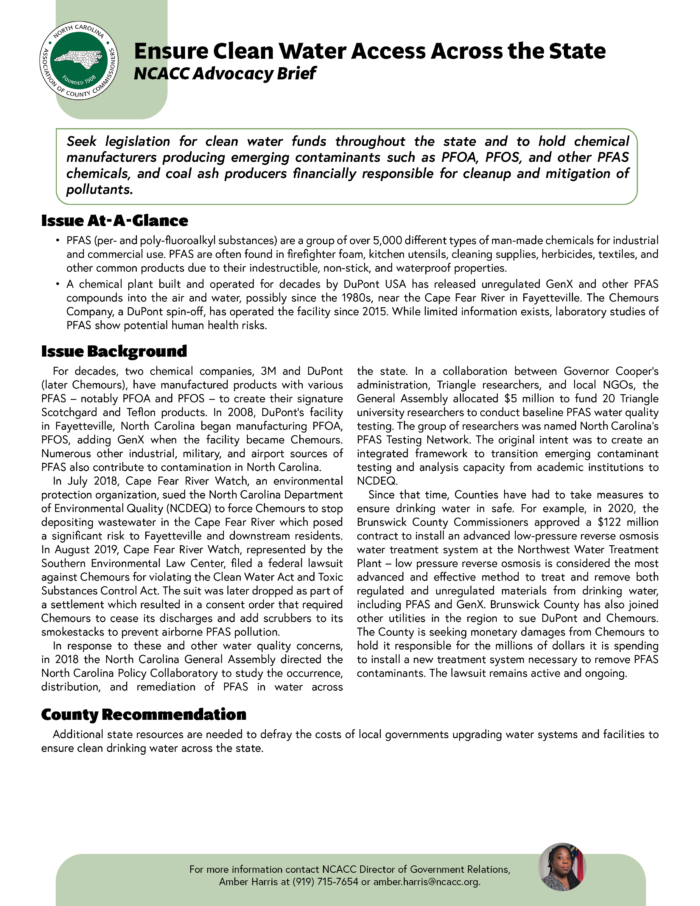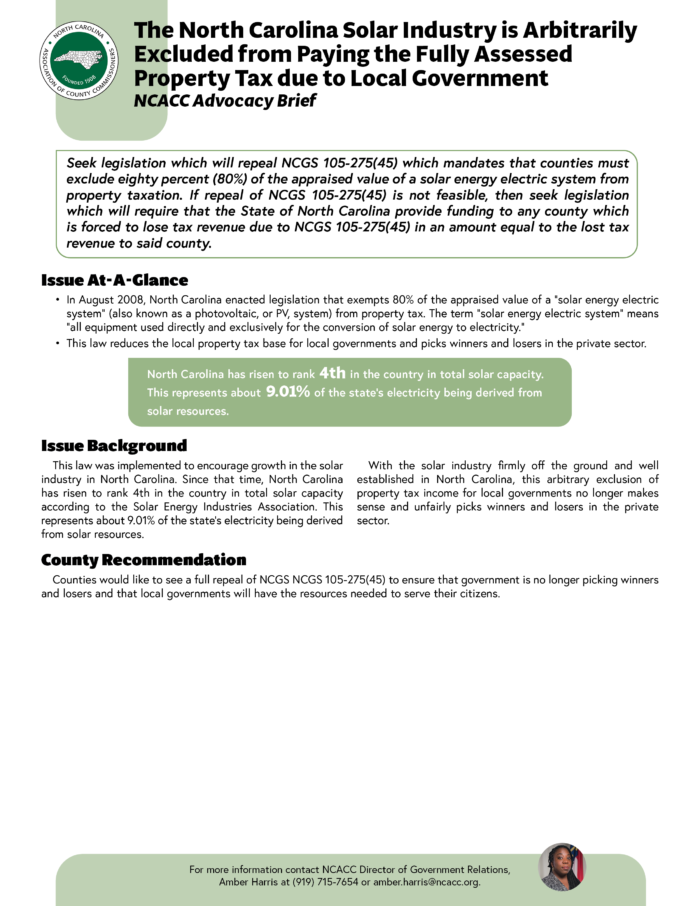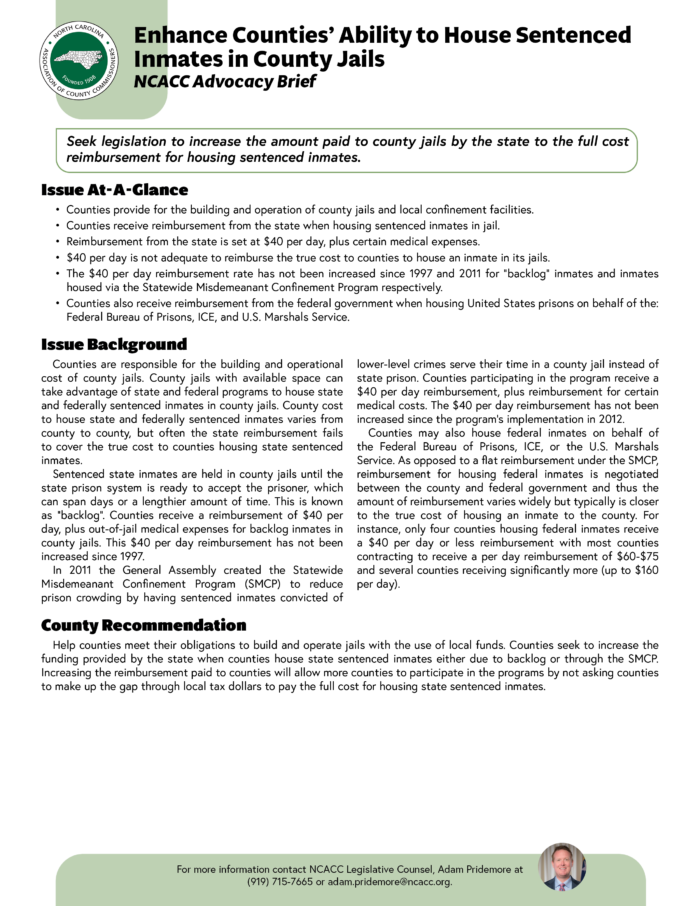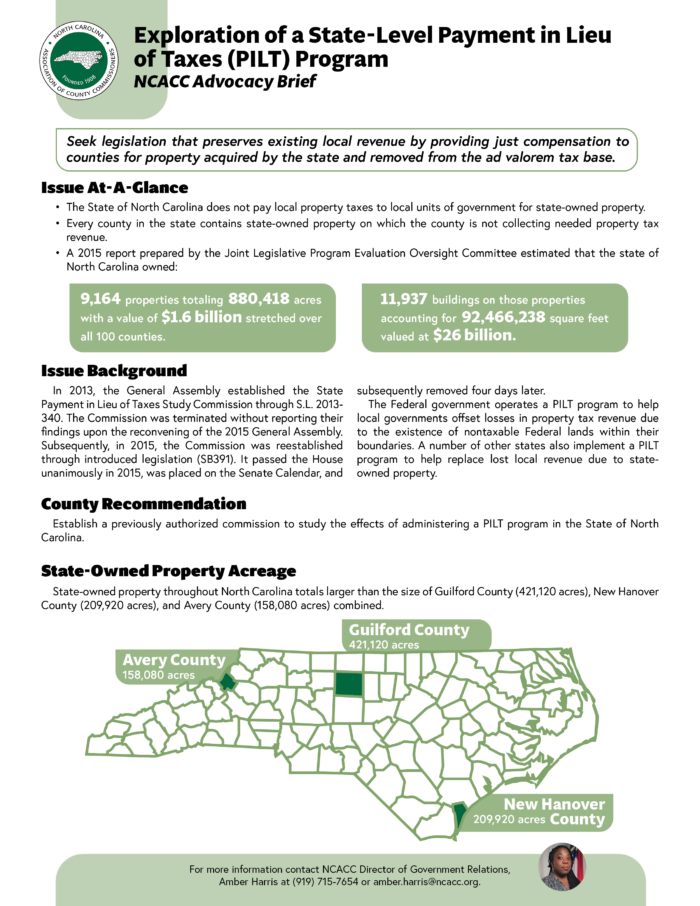Weekly Update Legislative Brief
- July 26, 2024
After adjourning late last month, the House and Senate of the North Carolina General Assembly have scheduled votes to override three of the Governor’s vetoes.
With the bulk of the short session’s work likely complete for the short session, NCACC has compiled a report on legislators’ work this spring and summer and summarized legislation with impact to counties; linked here. NCACC will continue to update and publish this report when and if more action is taken on legislation by the General Assembly at any of its scheduled reconvened sessions.
Click the button below to view our 2024 End of Session Report
End of Session Report
The Association has released its final end of session report for the 2024 legislative short session that outlines the major legislative happenings and major developments with impact to counties. The full report is available here.
Budget Reports
Overview of 2024-25 House and Senate Budgets and Impact to Counties
This week, the House approved and released a 2024-25 budget, as talks between the House and Senate on a prenegotiated spending plan continue to stall. In response, on Thursday morning the Senate released its own, truncated, budget adjustment bill. That bill is expected to be voted upon early next week in the Senate.
The House’s $31.7 billion spending plan adjusts the 2024-25 budget passed last year by the General Assembly. Priorities in the House budget include additional funding for Opportunity Scholarship grants (funds available for private school tuition), increased teacher and state personnel raises, funding to childcare centers to offset expiring federal grants, and boosts in Medicaid provider rates. NCACC priorities incorporated in the budget include removal of the county match requirements in the Completing Access to Broadband programs, and additional K-12 public school capital funding via the lottery.
The Senate’s $31.4 billion budget adjustment does not provide additional raises for teachers or state employees or increases to lottery allocations to K-12 public school capital funds beyond those in already in place in last year’s budget agreement. The Senate budget also includes additional funding for Opportunity Scholarship grants, funding to childcare centers to offset expiring federal grants, and the removal of the county match requirement in the Completing Access to Broadband (CAB) program.
Senate leadership publicly signaled their intention to adjourn the 2024 short session by June 30. A final negotiated budget could be agreed upon by the House and Senate by then, or shortly thereafter, but it is also possible for negotiations to extend into late summer.
To read the full NCACC 2024-25 House and Senate Budgets report, click here.
2023-2024 Legislative Goals
Every two years, in the months preceding the long session of the North Carolina General Assembly, NCACC begins a grassroots process to develop our Association’s legislative goals, which guide our advocacy efforts at the state and federal levels of government. The process is designed to maximize participation by counties, build consensus among counties, and achieve a unified message on county priorities. View the 2023-2024 Legislative Goals.
The importance of participating in the legislative goals process cannot be overstated. When policymakers hear the same message from all 100 counties throughout our diverse state, the voice of each individual county becomes amplified. Counties are stronger together and our common purpose is enshrined in NCACC history and our vision statement, which states: “Empowering 100 counties to work together for the betterment of one state.”
Advocacy Briefs
Video Library
How to Find Your Legislator
How to Find and Track a Bill
How to Read a Bill
NCACC County Lines Video Series
NCACC Policy Team
*Registered lobbyists

Kevin Leonard*
Executive Director
(919) 715-4369 Email Kevin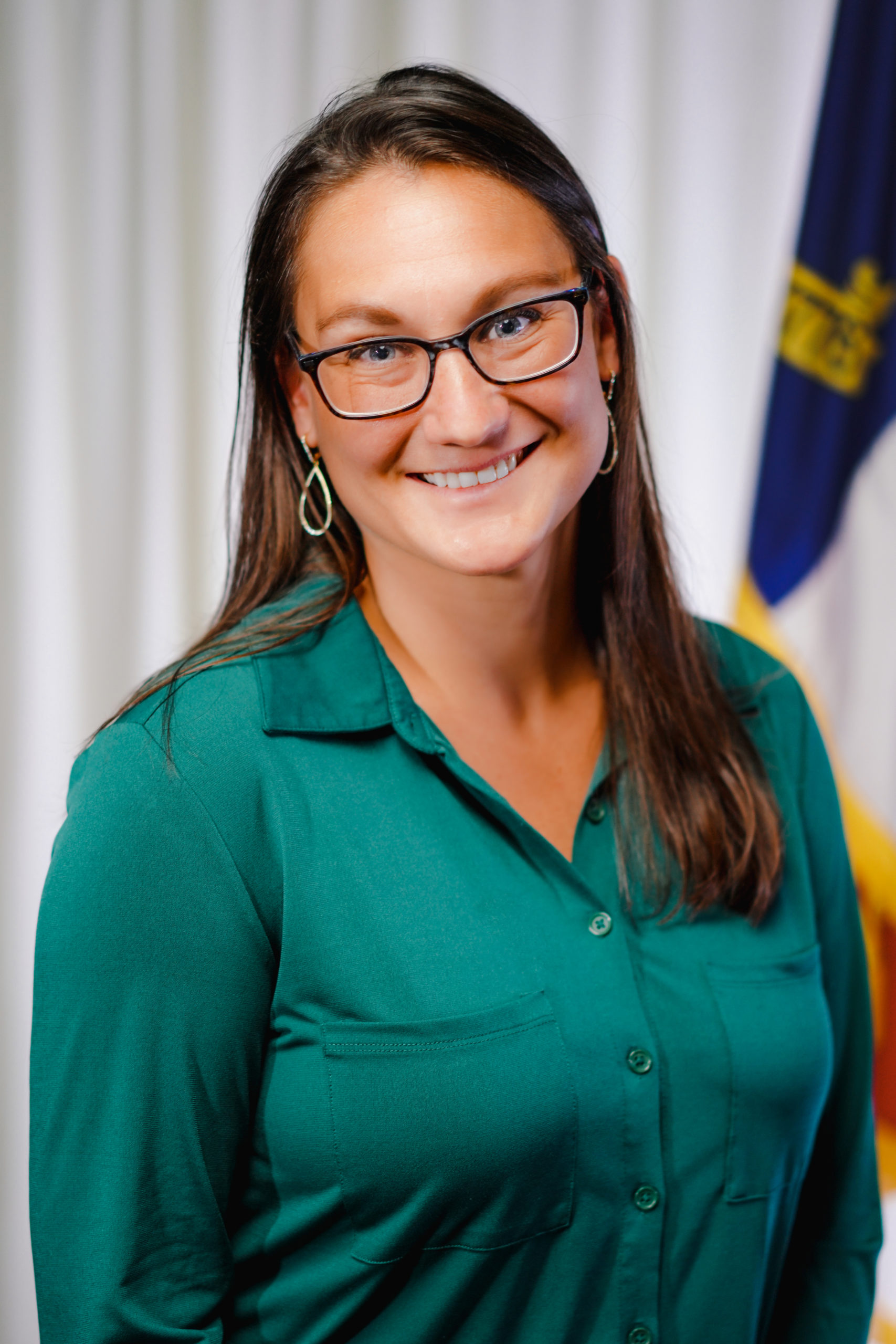
Laurel Edwards
Director of Strategic Planning
(919) 715-4362 Email Laurel
Amber Harris*
Director of Advocacy and Policy
(919) 715-7654 Email Amber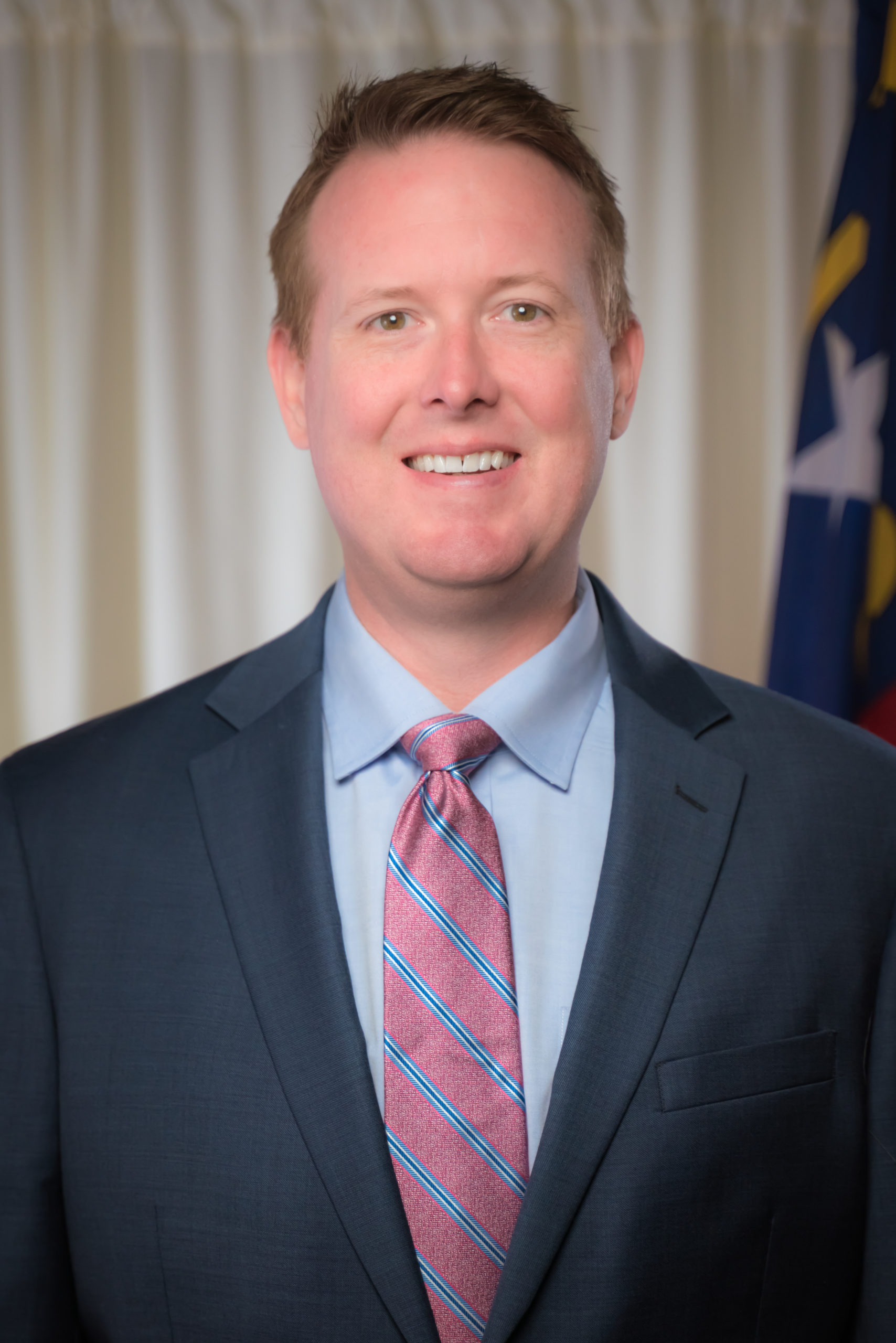
Adam Pridemore*
Deputy General Counsel
(919) 715-7665 Email Adam
Denise Canada
Fiscal Policy and Research Director
(919) 715-8044 Email Denise

